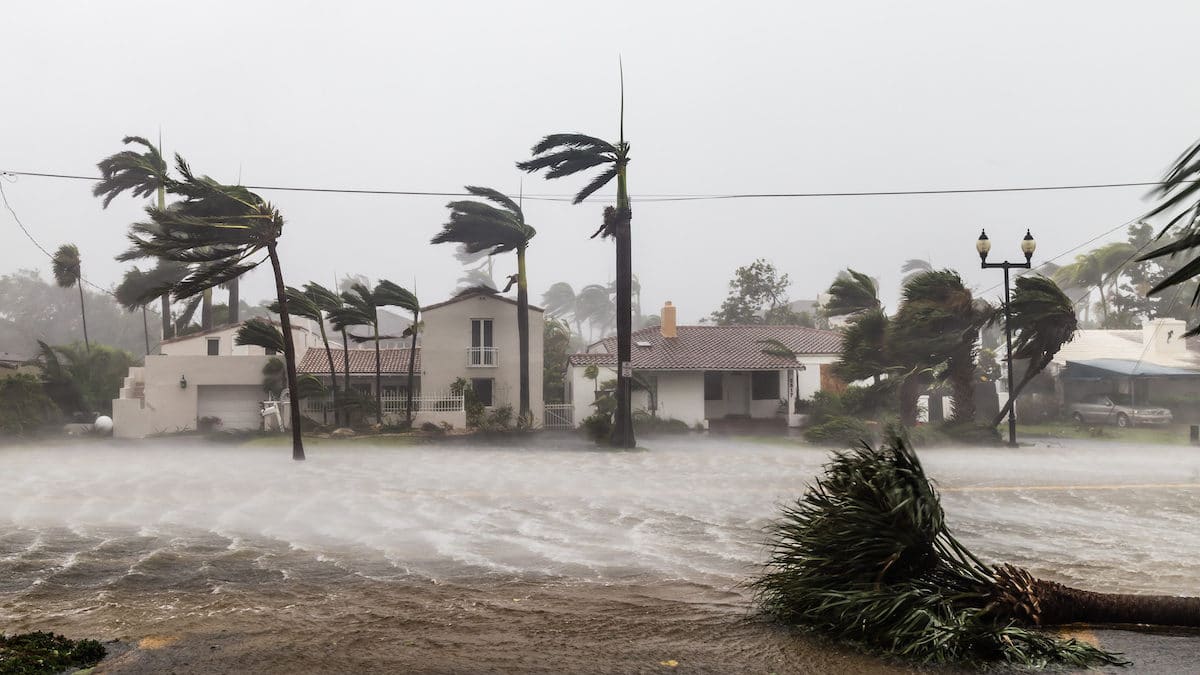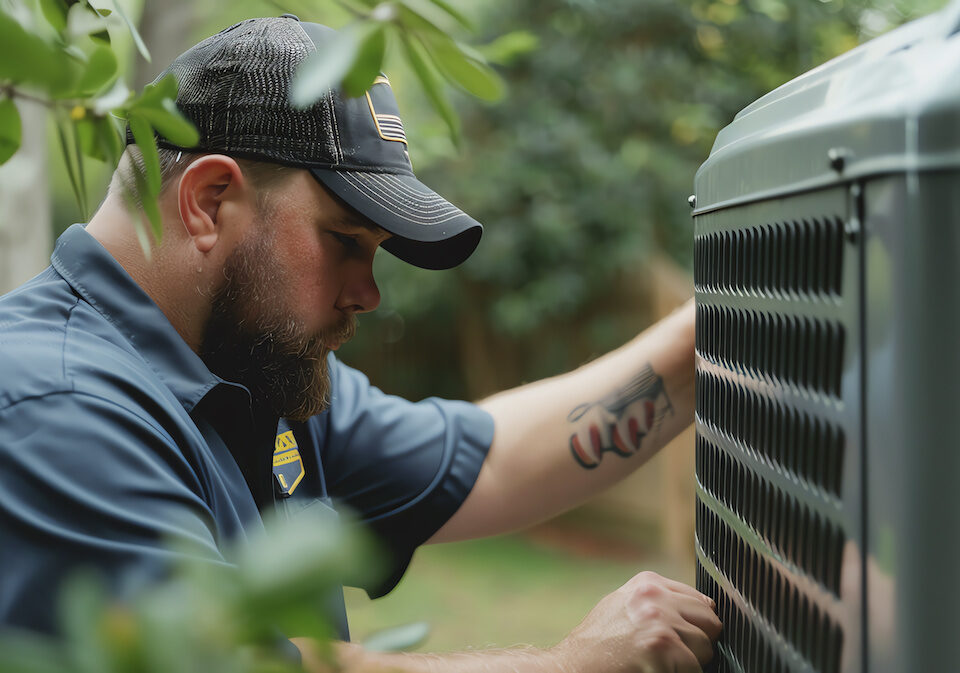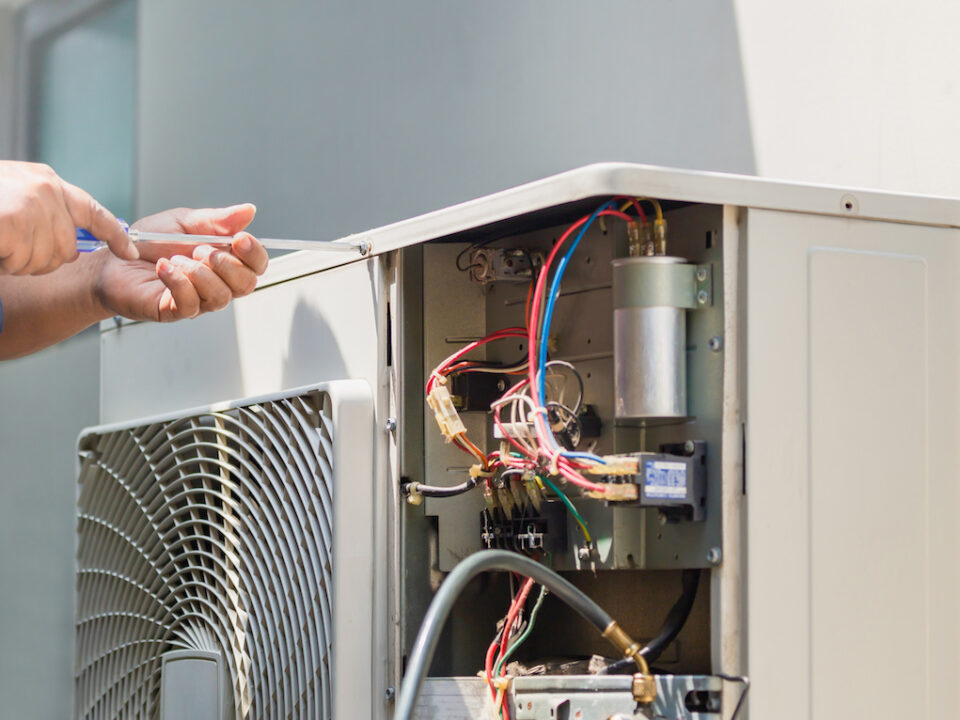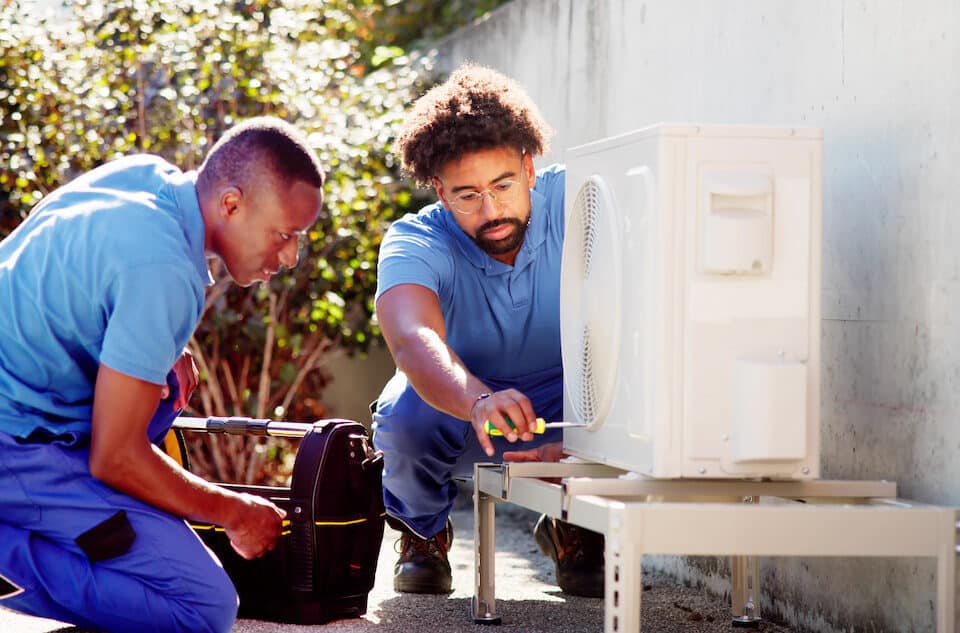Preparing Your AC Unit for a Hurricane in 5 Easy Steps

The summer weather brings more than just unbearable heatwaves. From June 1st to November 30th, it is considered “hurricane season” in the southeast. As a coastal state, Georgia is at risk for the impact and lasting effects of these superstorms. Hurricanes can be catastrophic and cause thousands of dollars in damage. This damaging and destructive path can reach hundreds of miles into the coast. Often times, the best course of action to remain safe during a severe hurricane is to evacuate the area entirely.
Hurricanes and other tropical weather activity bring more than rain and strong winds. The damage caused by hurricanes can cause power outages and leave your house without the comfort of air conditioning during the summer month’s intense heat. Power surges, power outages, and intense weather conditions can have serious impacts on your air conditioning unit. Taking steps to prepare and protect your AC unit is crucial for the conservation and longevity of your unit each year during hurricane season. Here are six steps that can help to minimize damage and get it up and running faster following an outage:
- Cool your home in advance – Unlike other severe weather phenomena, hurricanes have warnings in advance of when they hit. This allows for people to prepare themselves, their homes, and/or evacuate entirely. If a hurricane or storm is coming and you feel like your power might go out, you can cool your home in advance to stay comfortable until power is restored. Set your thermostat lower than usual, close any curtains, blinds, and keeps doors and windows closed to keep the cool air inside.
- Turn off the electricity to your AC unit – After your house has been pre-cooled in preparation for a storm, it is important to take additional precautions for your machine. During a hurricane, electrical surges are common. An electrical surge comes from lightning strikes and can be very damaging to your AC unit. This can cause the motor to burn out if it is working overtime. To be safe, shut off any electrical power to your AC system and turn off any power to the thermostat and circuit breaker.
- Secure your outdoor AC unit – If your AC unit is a window unit or an elevated unit on the second floor of a building or higher, be sure to secure your unit. This can be done by using hurricane straps to secure your outdoor condenser unit. Hurricane straps can be especially necessary in the case of strong gusts of wind. Elevating a unit as a form of protection is also important in areas that are prone to flooding. Speak to an expert today about what your options for best protecting your unit during hurricane season are.
- Cover your outdoor AC Unit – If you are expecting severe hurricane-strength winds and rain, this can be crucial for the protection of your unit. After you have turned off the electricity to your AC unit and secured it, cover it with a tarp or plywood to protect from debris. Debris during a hurricane can be especially dangerous. High wind can knock over trees and send branches or patio furniture flying. It is important to remember to remove the covering on your unit as soon as it is safely possible to do so. This can prevent mold or mildew build-up from any trapped moisture.
- Check AC unit for any damage or debris before turning it back on – This is an important, and often overlooked, step. Following a hurricane, the discomfort of a home without airconditioning can be unbearable. Assess the damage and the surrounding area of your unit before turning it back on. If any flooding or debris has damaged the unit, turning it back on can make this damage worse. Following a hurricane, it is possible that storm winds could’ve cause disconnections within an AC unit and lead to toxic refrigerant leaks. If you are unsure of your unit’s state, our experts can help assess any damage and let you know if it is safe to turn back on. To avoid mold and mildew build-up, turn your AC unit back on as soon as it appears to safe to do so.
Contact the Experts
If you have any questions, problems, or need repairs, call Trust Heating and Air. Our experts are here to help. We take the safest approach for any concerns you may have prior to or following a tropical weather system. Our experts help you make sure there are no problems with your AC before a storm and give the best course of action to secure it in the case of a hurricane. We are also available to assist you in the time following a hurricane to make sure your AC system is operating safely and efficiently. Give Trust Heating and Air a call today to learn more.



